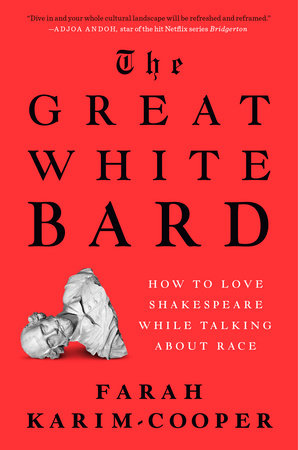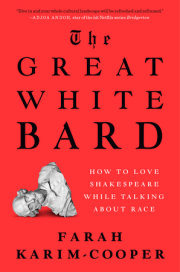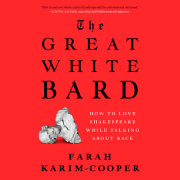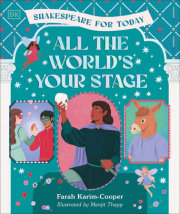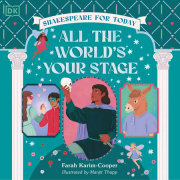Dr. Farah Karim-Cooper is the eighth director of the Folger Shakespeare Library in Washington DC. The Folger opened in 1932 as a home to the monumental collection of Shakespeare’s works and materials from the early modern world amassed by founders Henry and Emily Folger. Today, Dr. Karim-Cooper leads a staff of around 150 who continue to grow and care for the collection, provide opportunities for research and scholarship, program the Folger’s Elizabethan-style theater, offer training and classes for educators and students, and operate museum galleries and a café. As the Folger approaches its second century, Dr. Karim-Cooper is positioning the organization as an international leader for practical applications of Shakespeare and the humanities in civic life.
Prior to joining the Folger, Dr. Karim-Cooper was Professor of Shakespeare Studies, King’s College London, and Director of Education (Higher Education & Research) at Shakespeare’s Globe, where she worked for 20 years. While at the Globe, she led the architectural enquiries into early modern theaters as Chair of the former Architecture Research Group, overseeing the research into the design and construction of the Sam Wanamaker Playhouse. She was a co-project leader with the CEO and AD on the playhouse construction.
Dr. Karim-Cooper served as President of the Shakespeare Association of America 2021–2022 after serving 5 years on the Board of Trustees. She is the recipient of the British Shakespeare Association Fellowship Award 2023 for her contribution to Shakespeare Studies and Inclusivity. She held an Oxford Humanities Cultural Programme Fellowship and was Visiting Fellow of Exeter College Oxford from 2022–2023.
She has published over 40 chapters in books, reviews, and articles and served as a co-General Editor for Arden’s Shakespeare in the Theatre series and their Critical Intersections Series. She has published several books on Shakespeare, theater, performance, and culture, including:
Cosmetics in Shakespearean and Renaissance Drama (Edinburgh University Press, 2006, revised ed. 2019) and
The Hand on the Shakespearean Stage: Gesture, Touch and the Spectacle of Dismemberment (Arden, 2016). She co-edited
Shakespeare’s Globe: A Theatrical Experiment with Christie Carson (Cambridge University Press, 2008);
Shakespeare’s Theatres and Effects of Performance with Tiffany Stern (Arden, 2012) and
Moving Shakespeare Indoors: Performance and Repertoire in the Jacobean Playhouse with Andrew Gurr (Cambridge University Press, 2014); she edited a collection of essays for Arden,
Titus Andronicus: The State of Play (2019) and edited the text of
John Webster’s The Duchess of Malfi for the Routledge Anthology of Early Modern Drama, collated by Jeremy Lopez (2020). Her book,
The Great White Bard: Shakespeare, Race and the Future (2023) was voted top 100 books of 2023 by
Time Magazine, NPR and
The New Yorker.
Her latest book,
All the World’s Your Stage: Shakespeare for Today, is written specifically for children ages 9–12. It will be published in November 2025 by DK.
View titles by Farah Karim-Cooper

